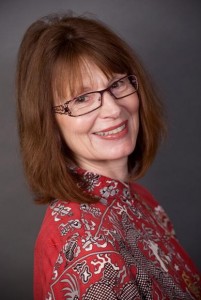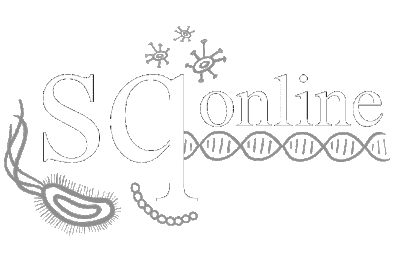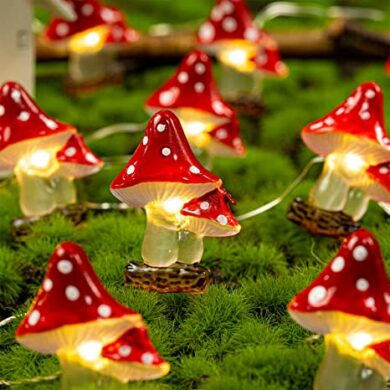Pieces of the Puzzle
By Lily Huang | SQ Staff Writer | SQ Online (2013-14)
It takes guts to make tough decisions, but moving to La Jolla from Germany was an easy decision for Dr. Gabriele Wienhausen, Associate Dean for Education in the Division of Biological Sciences and co-director of the Doctoral Program in Mathematics and Science Education Research.
From a young age, Dr. Wienhausen knew that she loved biology. In her youth, she had enjoyed collecting bugs and identifying plants. She worked hard in school, and did all of her educational and professional training in Germany.
“I came to the United States when I was an Assistant Professor in Germany to spend a sabbatical type year here,” Dr. Wienhausen said. “I was interested in and did work in Dr. Marlene DeLuca’s laboratory.”
Dr. Marlene DeLuca and her husband, former UC San Diego Chancellor William D. McElroy, were the leaders in studying bioluminescence, especially in the application of bioluminescence as an analytical tool.
“That was something absolutely new at that time,” Dr. Wienhausen said. “Using bioluminescence as an analytical tool allowed visualization of molecules and also the measuring of very, very, very small amounts of molecules in a reliable way. It really opened up the field of molecular biology tremendously because you need tools to study and visualize.”
Dr. Wienhausen was studying the metabolic adaptations of animals living in unusual environments, such as low to no oxygen, high pressure and high temperature environments.
“I was interested in developing tools like bioluminescence to identify very small amounts of metabolites, necessary for identifying metabolic pathways. I am a metabolic biochemist by training,” Dr. Wienhausen said. “I usually avoid saying the animals that I worked with, because most people say: Yuck!….They are worms that live in the intertidal zones.”
During low tide, the intertidal zone has no water, which means that the worms were living in anaerobic conditions.
“I started to do this for my thesis work and I wanted to continue to do this as an assistant professor. I had funding from Germany, so I came here, and stayed here for one year. Then I was able to stay a second year. Then I knew I wasn’t going back to Germany,” Dr. Wienhausen said.
Q: What led you to that decision?
A: Many people back in Germany thought I had lost some neurons, but it was the best decision I ever made. People always come to Southern California and the first thing they say is it’s the nice weather, but ultimately to be happy somewhere, it is really the work environment, the people, and what you think you can do. Coming here from Germany, I was really amazed and impressed by what was possible here. I was impressed by how science was done and how women in science were treated. I often tell this story because I found it amazing.
Dr. Wienhausen was amazed at how easy it was to do collaborative work here and the strong team work spirit we had at UC San Diego.
“The way people interacted, respected each other and how everyone was allowed to contribute here, I thought it was phenomenal,” commented Dr. Wienhausen, “People are collaborative and sharing. I thought I had died and woken up in heaven.”
This “heavenly” early 1980’s time period when Dr. Wienhausen came to the United States was the time of affirmative action and discussion of diversity, equity, and inclusion.
Q: What was your first impression of these changes?
A: When I came here, I thought this was all normal, but I had no idea that this was all new. I came at that time and I was a part of this. The ability to work across disciplines was not only in the sciences, but overall people collaborated in this campus and it was supported and it was easy to work with others on projects. We worked on grants together for undergraduate education across disciplinary. It was easy and it was what we did here. I love this place. It has allowed me to do many interesting things. So I quit my job in Germany and stayed here.

Dr. Wienhausen spent her early years at UCSD as a research scientist, until she expressed that she “would really like to teach” to the then chair of the Department of Biology, Dr. Herbert Stern. Stern asked her what she could teach, and what she could teach was exactly what the chair needed.
Dr. Wienhausen taught a few courses in Physiology, Endocrinology and Biochemistry. Dr. Wienhausen was offered a great opportunity in the Biology Department to go into a teaching role and leave wet lab science.
For Dr. Wienhausen, this opportunity had come at that right time.
“I had just given birth to my first son. Leaving wet lab science and switching to teaching allowed me to remain engaged in science while also raising my children,” she explained.
Q: How did you like teaching?
A: I liked it. It is really creative work. It forces me to think about science in a different way: of how to teach it and to help the next generation learn and I thought this was really terrific so I did it. Out of that came a lot of amazing opportunity.
Since her teaching career began, Dr. Wienhausen had worked hard to collaborate with other faculty to create many opportunities for students. With a colleague in chemistry, they applied for a large grant from the Howard Hughes Medical Institute (HHMI) and the grant was renewed for 12 years divided into 4 year increments. With the grant, they revamped the lab instructions and developed an extensive outreach program. “It was an amazing experience and opportunity,” reflects Dr. Wienhausen.
During that same time, she collaborated with colleagues from chemistry, math, physics, and colleagues from San Diego State, to start a doctorates program in Math and Science Education Research.
Q: What is your role in the Math and Science Education Research Doctorate Program?
A: I am currently a co-director for this program. We are admitting students with a master’s degree in any one of the sciences and math. It’s a 4 year Ph.D program and students learn how to do research about how people learn and of how we should therefore teach. That’s the research I’m doing now and that’s what I’m involved in. It’s a small but great program.
Q: What was the transition like from teaching biology to becoming the first Provost of Sixth College?
A: It wasn’t easy, and it was actually really hard to leave biology. In 2000, I became Provost of Sixth College and I was literally at that time a “one woman show.” I had to hire people, put together a faculty committee that would help me design the curriculum for Sixth College like the practicum and the CAT writing classes, and the overall structure of Sixth College. It was really cool and an amazing opportunity. I almost said no but somebody said, “You’re crazy not to take it.”
People were right, I learned so much. I had no clue about residential life. It gave me a deeper appreciation for student life and the overall student experience. You never have an opportunity to learn about this when you only interact with students as a teacher inside the classroom. You realize that being a student, being in a classroom only represents a small part of a student’s life. When you really get to know students on a daily basis, you’ll know of the wonderful things that happen and all of the terrible things that happen to them. It’s amazing. I got to know a very different part of the campus and I had the opportunity to work with people who I would have never met otherwise. I received an amazing education.
As Dr. Wienhausen was leaving the Biology Department in 2000, the Biology Department was leaving the Natural Physical Sciences Division to become its own Biology Division. “I always say that they got a divorce, but that’s not it,” joked Dr. Wienhausen.
Q: What changes did the new Division bring?
A: In 2007, the new Dean Steve Kay contacted me when I was still Provost and said, ‘I want to create a new position in the division,’ and that position is Associate Dean for Education. What I had envisioned this person to do was being a creative leader in education, undergraduate and graduate education, and help develop an educational environment for students that equal the quality of research that we have.
I was happy where I was and I asked myself: why should I go back? This position was new, had a new challenge,which is why I ultimately took it. The position allowed me to apply what I’ve learned from building Sixth College. Without the Sixth College experience, I would have never been able to do this new work. It’s an important lesson. There are lots things you do in life and sometimes you don’t quite see how all of this will fit together and then it does at one point. It’s amazing. So then in 2007, I came back to Biology and to assume this position , and it’s been fun ever since. It’s a lot of work and we absolutely are not even close to where we want to be but I think we’ve made progress.
As the Associate Dean of Education, Dr.Wienhausen thought it was only logical to become the advisor of Saltman Quarterly because it’s an educational experience.
“It really came from the understanding that we needed to build a framework for effectively supporting this group,” explained Dr. Wienhausen. “SQ is an amazing group. Doing science has many parts and a very important one is communicating science, which is what SQ does. It’s a passion for all of us.”
Dr. Wienhausen is the supporting advisor that ensures the longevity of the student organization and program, the Saltman Quarterly. She teaches students the importance of program sustainability, where graduating senior students must make sure that their younger members are ready and have the skill sets for succession. Saltman Quarterly is currently working on their 11th volume.
Q: Did you personally know Paul Saltman, the legacy namesake of Saltman Quarterly?
A: He was at first a mentor and then really became a friend. When I work with you guys and talk about Saltman Quarterly, I see the man and I know who he was and what he did. It’s a range of emotions: it’s joy and humbling. Knowing that by being involved and having an opportunity to really keep his memory and legacy alive is very gratifying. He was a really amazing man and it is an honor to work for a group that was created in his honor. So there is a spirit there and you guys [in Saltman Quarterly] have it.
Q: What is the most important lesson you’ve learned from Dr. Saltman?
A: Having seen him as a role model and a mentor, it had allowed me to really enjoy and embrace my role as a teacher, and really understand how important it is to help students understand how much we respect and value them as a person. I really enjoy being at UCSD and I am very thankful for the many opportunities I have had here. Meeting Paul Saltman and learning from him what it really means to be a teacher stands out as one of the most influential and important encounters.

